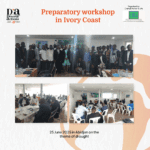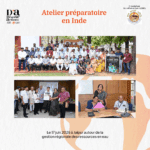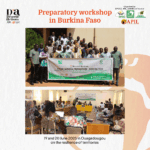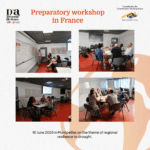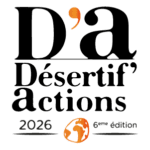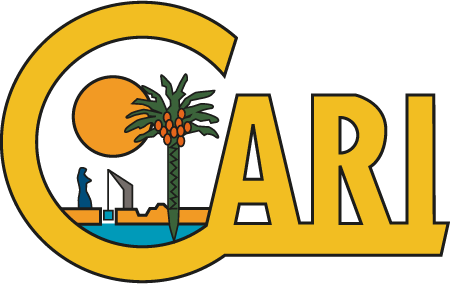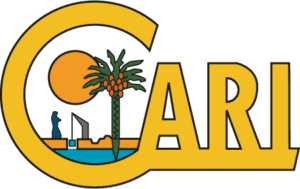News of 13/11/2025
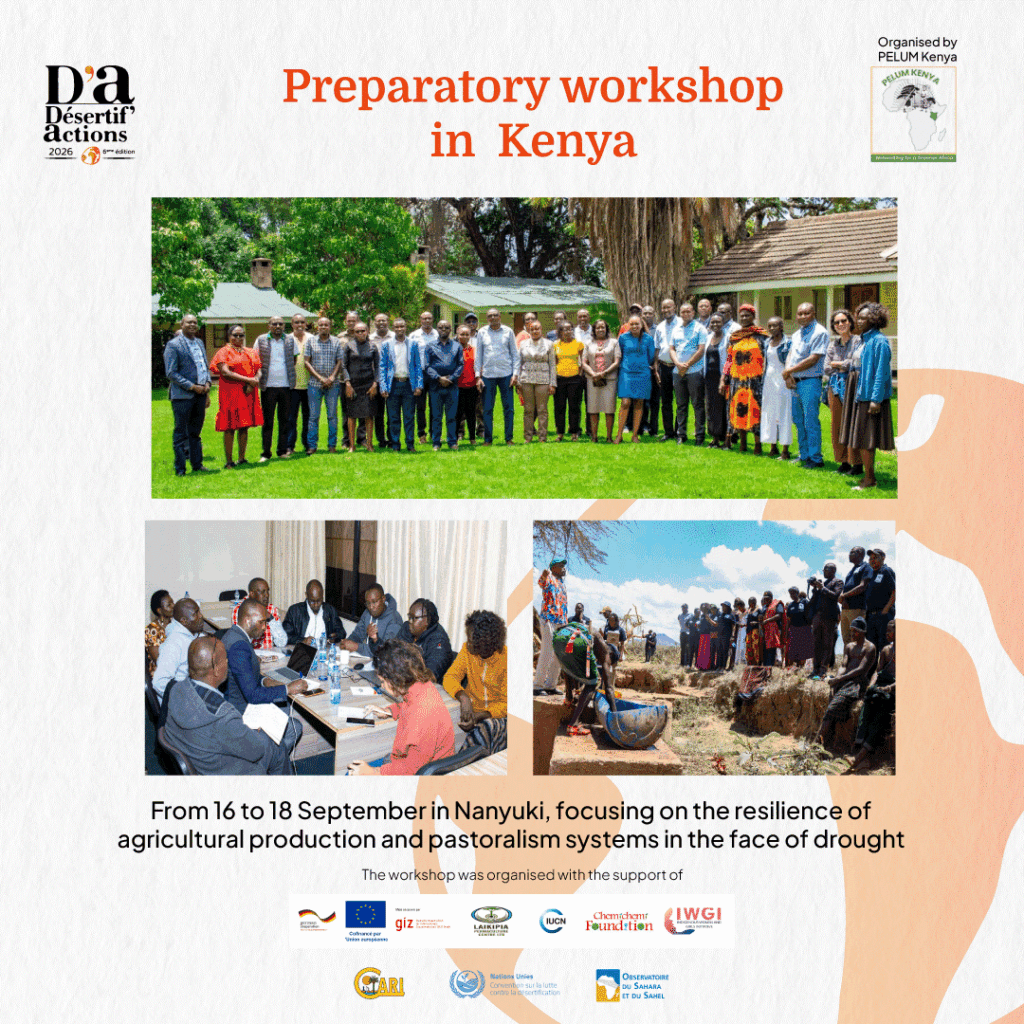
As part of the preparation for the Desertif’actions 2026 International Summit, to be held from 25 to 28 March 2026 in Djerba (Tunisia), the Participatory Ecological Land Use Management (PELUM) Kenya association organized a national preparatory workshop on resilience of agricultural and pastoral production systems to drought, from 16 to 18 September 2025 at the Sportsman’s Arms Hotel (Nanyuki County).
The event brought together representatives from civil society organizations, government agencies, county administrations, academia, development partners and grassroots communities.
A workshop focused on arid and semi-arid lands
Held under the theme « Strengthening Civil Society Participation in Combating Desertification, Land Degradation and Drought in Kenya ». The workshop featured opening remarks and presentations from PELUM Kenya, IUCN, NEMA, Egerton University and GIZ.
Speakers emphasized the need to :
- integrate indigenous knowledge into land governance
- ensure effective community participation, especially by women and youth
- align local actions with national policy frameworks (LDN targets, resilience strategies)
A field day
On the second day, participants visited Laikipia County to observe concrete community initiatives :
- construction of sand dams and water-harvesting structures
- indigenous tree nurseries and restoration practices
- household kitchen gardens and beekeeping
- valorization of invasive species (Opuntia) for food, fodder and value-added products
These visits highlighted the importance of linking policy dialogue with local action and the central role of women and youth in landscape restoration.
Agroecology and rangeland governance
An interactive session led by Dr Che Thoner Victorine (IUCN) explored agroecology for sustainable rangelands, showing its potential to restore ecosystems while strengthening community empowerment and food security. Concrete examples (Baringo, Northern Kenya, local cooperatives) illustrated solutions against erosion, for land rights and income diversification.
Barriers, levers and advocacy priorities
Group discussions identified recurring barriers such as centralized funding, limited access to technology and applied research, land-tenure challenges and capacity-building needs.
Proposed levers included direct financing to communities, county-level agroecology policies, local action-research and stronger cooperatives.
Key advocacy messages included :
- finalize and fund key policies (agroecology, rangeland management, climate adaptation)
- channel decentralized funding to grassroots actors
- invest in local research and equipment for resource valorization (e.g. : Opuntia processing)
- institutionalize environmental education and promote the participation of women and youth
Toward national and international advocacy
The workshop concluded with a call for better-funded policies, direct community support and multi-stakeholder partnerships.
The outcomes will feed into Kenya’s contribution to COP17 and the Desertif’actions 2026 Summit, amplifying local voices and promoting inclusive governance of land and water.
For more information about this workshop, contact PELUM Kenya : manei@pelumkenya.net
Read the full set of recommendations in the complete workshop report.
